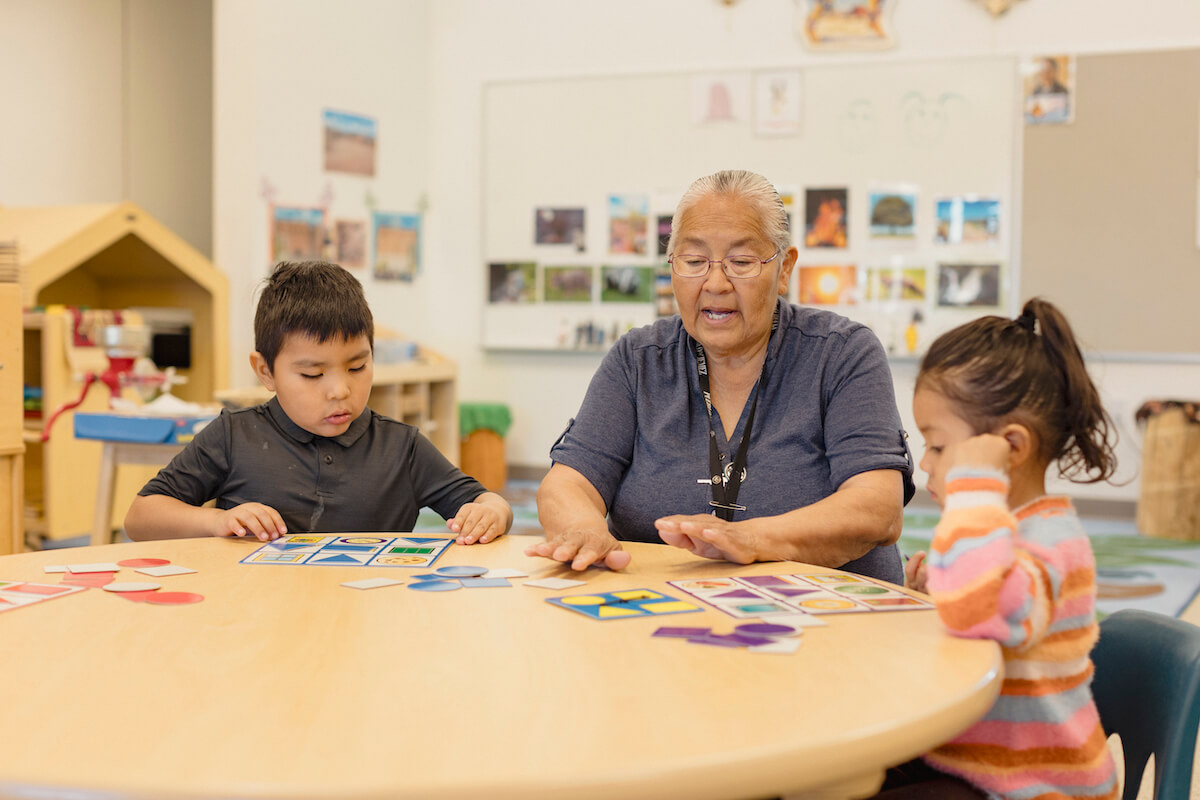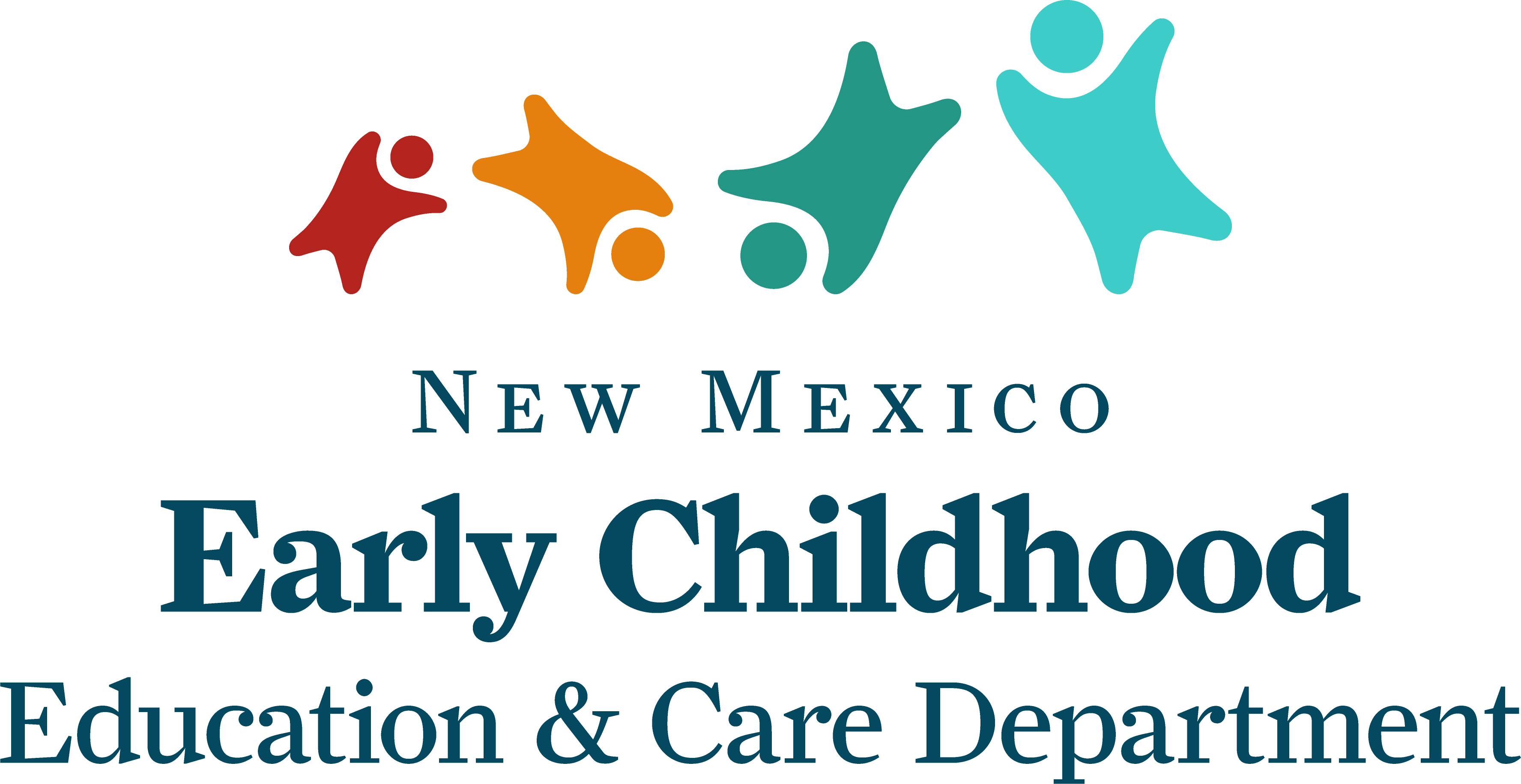Take our free quiz to get personalized early childhood career recommendations.

Do You Speak the Language of a New Mexico Tribe, Nation, or Pueblo? Consider a Career in Early Childhood!
Indigenous early childhood professionals can strengthen traditional languages (and earn a $1,500 bonus!)
At the Walatowa Head Start at Jemez Pueblo, all the teaching happens in the Towa, or Hemish, language. The program is recognized nationally as a leader in sustaining Tribal culture through early learning, with curriculum that was specially developed to meet Head Start standards through Hemish traditions. Jacqueline Toledo-Magdalena has taught there for more than 25 years, and she said the Pueblo benefits when young children learn their language.
“It makes us stronger as a community,” said Jacqueline, who is featured as part of New Mexico’s Developing Futures campaign. By teaching young children the Hemish language, which is only spoken on the Pueblo, Jacqueline and her colleagues can help ensure the language thrives well into the future. This is especially important because most Indigenous languages in North America are considered endangered, with a shrinking pool of people who speak and understand them. By passing them on to children, Indigenous early childhood professionals can make a major impact on both the children they teach, and the future of their language and traditions.
New Mexico needs more early childhood professionals like Jacqueline—especially those with knowledge of Native languages. As a special thank-you to bilingual early childhood professionals, New Mexico offers a one-time, $1500 bonus to early childhood professionals who demonstrate fluency in two languages. To qualify for the bonus, professionals who speak Tribal languages can document their skills with a certificate or letter from their Tribal government.
In addition, New Mexico’s early childhood strategic plan includes a goal of supporting 500 Indigenous early childhood professionals to earn certificates and degrees in higher education. That goal is supported by initiatives like specialized stipends for bilingual and Indigenous professionals (applications are closed for 2025, but check back for updates).
Besides the supports designed specifically for bilingual and Indigenous professionals, New Mexico offers a range of pay supplements, scholarships, and mentorship opportunities for the state’s early childhood workforce more broadly. Those supports are in addition to the rewards and joys of working closely with young children and watching them grow. “I think that we have the best job,” said Arlissa Francisco, who teaches PreK at To’Hajiilee Community School. Arlissa teaches Diné words and observes cultural events and customs in the classroom, which she said helps students develop their sense of identity and community. “It’s a big impact for them,” she said, “identifying who they are, where they come from, their household, who their parents are, what their background is.”

